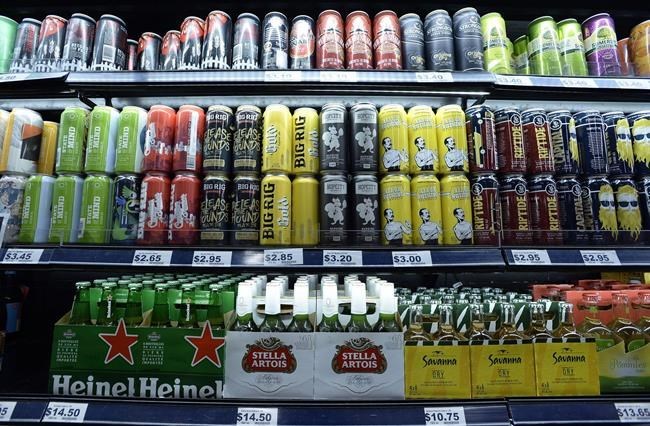TORONTO — Provincial and territorial governments need to remove internal trade barriers on labour, services and products like alcohol and meat, the Canadian Federation of Independent Business says.
The association's 2023 report on interprovincial co-operation said 88 per cent of small business owners believe it's crucial for governments to prioritize removing barriers that prevent the flow of goods, services and labour across provincial and territorial borders.
For example, it the report said businesses want to see professional licenses and certifications apply across jurisdictions.
Businesses surveyed also said they encounter restrictions on selling certain food products such as meat and cheese, as well as on selling alcohol, across provincial borders.
They said the complexity of sales tax structures is also a challenge when selling out-of-province.
One "outstanding irritant" for businesses is the inability to transport alcoholic beverages across provincial borders either in-person or through direct-to-consumer shipping, the CFIB said in its report, adding that more than three-quarters of business owners believe Canadians should be allowed to order Canadian alcoholic drinks directly from any province or territory.
"Despite various groups and organizations advocating for a resolution, the lack of progress can be partially attributed to a long history of different jurisdictions pursuing different policy and regulatory objectives," the report said.
Eight provinces allow residents to transport alcohol across borders, the CFIB said, but only one province — Manitoba — is "fully open" to alcohol shipments across borders to consumers. Meanwhile, Nova Scotia, British Columbia and Saskatchewan allow direct-to-consumer shipments of certain products from any jurisdiction, such as wine or spirits.
The CFIB gave grades to all the provinces and territories for their progress on reducing trade barriers, with Manitoba receiving the best score at A minus, followed by Alberta's B plus.
The CFIB gave Quebec last place with a D. It noted that Western provinces tended to get higher scores in part due to the New West Partnership Trade Agreement.
This regional trade agreement has helped streamline regulations and standards across British Columbia, Alberta, Saskatchewan and Manitoba, the CFIB report said.
It has also helped increase competition and drive down costs, it said.
The association said governments across Canada move should "adopt a mutual recognition agreement encompassing all federal, provincial, and territorial regulatory measures that impose requirements on the sale or use of all goods and services."
This report by The Canadian Press was first published July 10, 2023.
The Canadian Press




